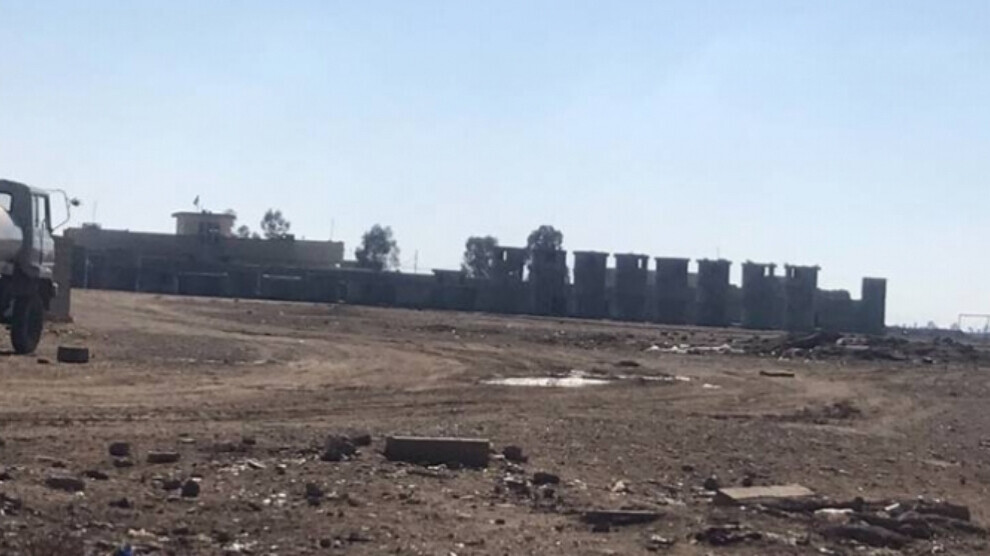Watchtowers erected around Maxmur Camp
After the Iraqi government's failed attempt to fence off the Maxmur camp with barbed wire, the military presence around the camp in southern Kurdistan is now being expanded.
After the Iraqi government's failed attempt to fence off the Maxmur camp with barbed wire, the military presence around the camp in southern Kurdistan is now being expanded.

After the Iraqi government's failed attempt to fence off the Kurdish refugee camp Maxmur with barbed wire, the military presence in the surrounding area is now being expanded. To this end, the Iraqi army's military post on the road connecting Maxmur Camp and the town of the same name has been upgraded with several watchtowers.
The residents of the camp feel threatened by the new massive watchtowers. The Iraqi military has erected at least nine new watchtowers in front of the base. The purpose of the militarisation of the region is unclear. "We fear that this threatens to nip in the bud any prospect of diplomatic initiatives to resolve the problems," the camp administration said, referring to the recent tensions. Nevertheless, the population is determined to prevent the "encirclement" of the camp, it added.
Maxmur camp is located about 60 kilometres southwest of Hewlêr (Erbil), the capital of the Kurdistan Region of Iraq (KRI). Since July 2019, it has been under an embargo by South Kurdistan’s ruling party, KDP. At the end of December, Iraqi troops wanted to fence the camp with barbed wire. After fierce protests, the Iraqi forces withdrew for the time being. Since then, the People's Council of Maxmur has been keeping watch and has set up a tent at the checkpoint at the entrance to the camp.
More than 12,000 people live in the Maxmur refugee camp. Most of them were forced to leave their villages in the Botan region in Northern Kurdistan in the 1990s due to the repression of the Turkish state and the scorched-earth policy. After an odyssey of several years and stays in various camps, they founded the Maxmur camp on the edge of the desert in 1998. The camp population thus forms the largest Kurdish refugee community worldwide. Officially, Maxmur is under the protection of the United Nations Refugee Agency (UNHCR), but they are only nominally present. The organisation left the camp during the attacks of the terrorist group "Islamic State" (IS) in 2014 and did not return afterwards.